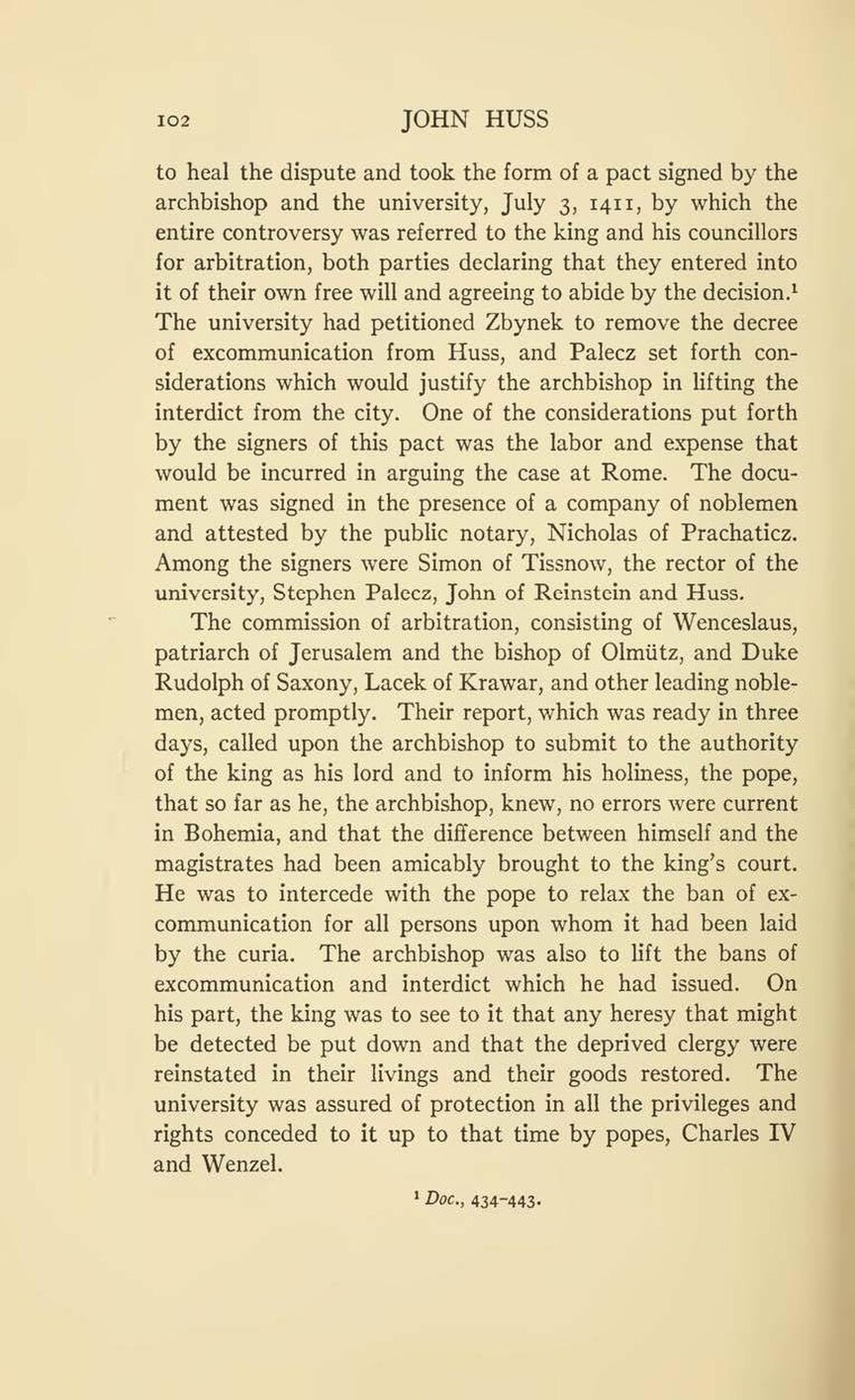to heal the dispute and took the form of a pact signed by the archbishop and the university, July 3, 1411, by which the entire controversy was referred to the king and his councillors for arbitration, both parties declaring that they entered into it of their own free will and agreeing to abide by the decision.[1] The university had petitioned Zbynek to remove the decree of excommunication from Huss, and Palecz set forth considerations which would justify the archbishop in lifting the interdict from the city. One of the considerations put forth by the signers of this pact was the labor and expense that would be incurred in arguing the case at Rome. The document was signed in the presence of a company of noblemen and attested by the public notary, Nicholas of Prachaticz. Among the signers were Simon of Tissnow, the rector of the university, Stephen Palecz, John of Reinstein and Huss.
The commission of arbitration, consisting of Wenceslaus, patriarch of Jerusalem and the bishop of Olmütz, and Duke Rudolph of Saxony, Lacek of Krawar, and other leading noblemen, acted promptly. Their report, which was ready in three days, called upon the archbishop to submit to the authority of the king as his lord and to inform his holiness, the pope, that so far as he, the archbishop, knew, no errors were current in Bohemia, and that the difference between himself and the magistrates had been amicably brought to the king’s court. He was to intercede with the pope to relax the ban of excommunication for all persons upon whom it had been laid by the curia. The archbishop was also to lift the bans of excommunication and interdict which he had issued. On his part, the king was to see to it that any heresy that might be detected be put down and that the deprived clergy were reinstated in their livings and their goods restored. The university was assured of protection in all the privileges and rights conceded to it up to that time by popes, Charles IV and Wenzel.
- ↑ Doc., 434–443.
